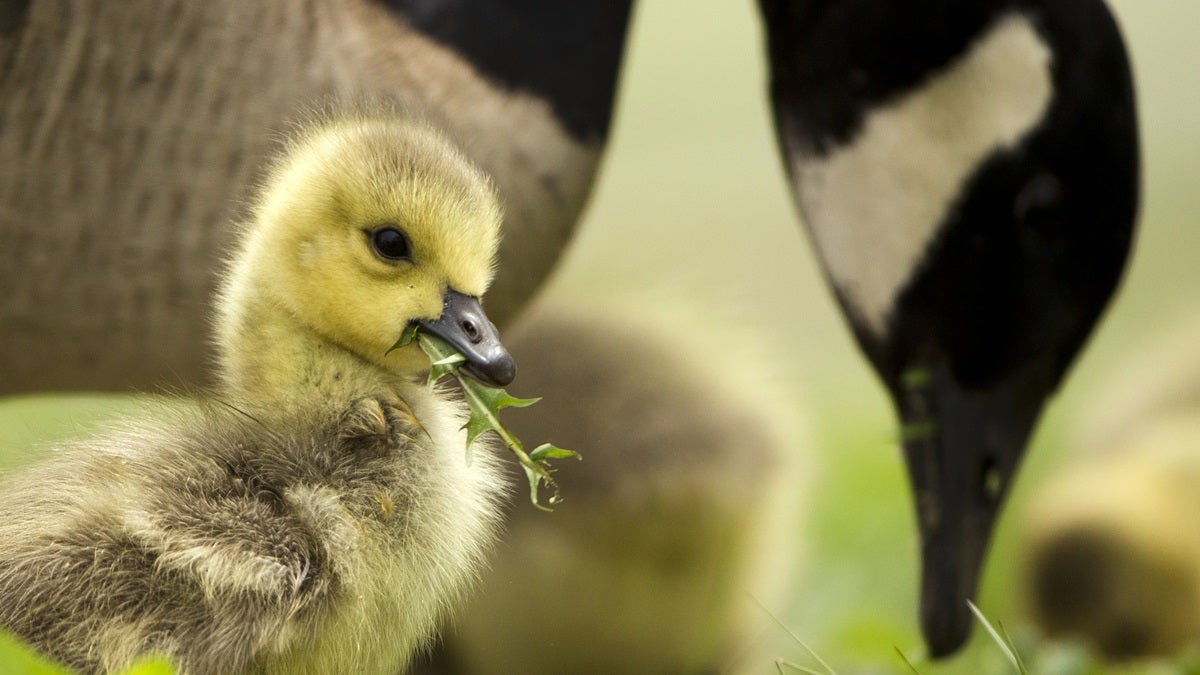Geese, ducks not welcome at Delaware State Fair

A Canada goose and a gosling feed near the Schuylkill River Friday, May 1, 2015, in Philadelphia. (AP Photo/Matt Rourke)
Avian influenza fears have prompted state agriculture leaders to prohibit waterfowl like ducks and geese from being presented at next month’s fair in Harrington.
While there hasn’t been a case of avian influenza on the East Coast, the ban on ducks and geese at the Delaware State Fair is being implemented “out of an abundance of caution,” said Delaware State Veterinarian Dr. Heather Hirst.
Hundreds of animals, including geese, ducks and chickens, are brought to the fairgrounds in Harrington every summer for competition.
“We know that some entrants will be disappointed,” Hirst said. “These precautions are necessary to help prevent the accidental spread of avian influenza.”
Avian influenza is considered highly pathogenic, meaning easily capable of causing disease. According to the Pennsylvania Department of Agriculture it has been found in 20 other states, including Michigan, the newest state to be impacted by the virus – nearly 50 million birds have been killed to date.
Because of the importance of Delaware’s poultry industry to the state economy, there is an active surveillance program in place to monitor for the presence of avian influenza. Delaware is home to roughly 200 million chickens which make up part of the $3 billion industry on the Delmarva Peninsula.
Wild ducks and geese can carry influenza virus in their feces without showing any signs of the disease, so keeping wild birds away from chicken farm flocks is key to stopping influenza before it starts here, according to Hirst.
Other bio security measures being taken include isolating birds from farm visitors and keeping shoes, tools and equipment clean when entering areas where birds live. Avian influenza is spread from bird to bird through saliva, feces and other bodily fluids.
In December, Hirst issued a warning that poultry growers need to be vigilant in 2015 after cases of avian influenza in Oregon and Washington. “Though it’s far away at the moment, we know that avian influenza can spread rapidly,” Hirst said last year.
WHYY is your source for fact-based, in-depth journalism and information. As a nonprofit organization, we rely on financial support from readers like you. Please give today.





